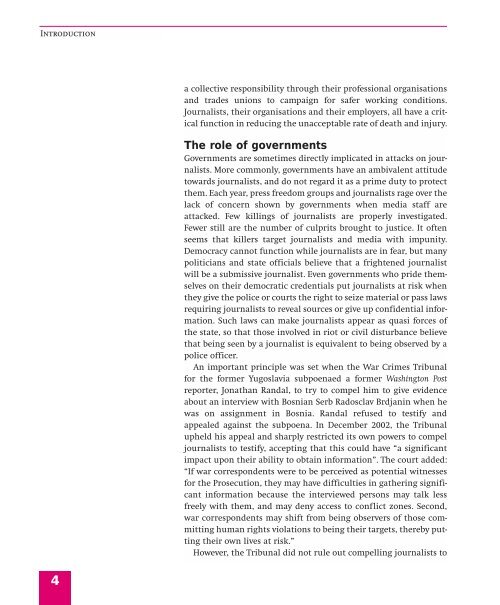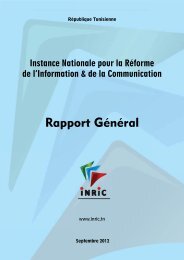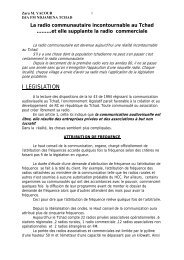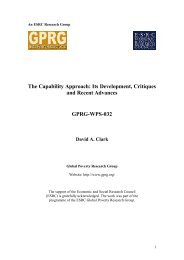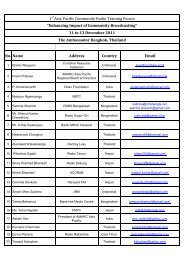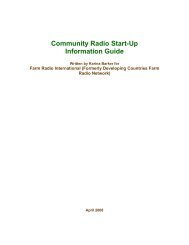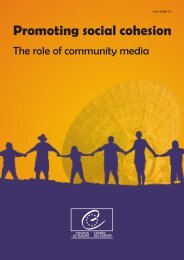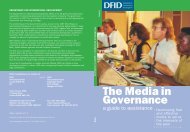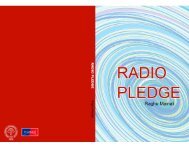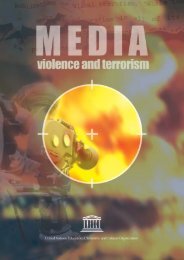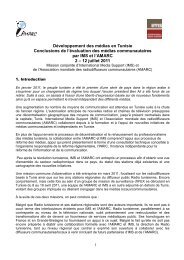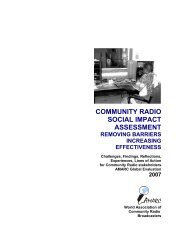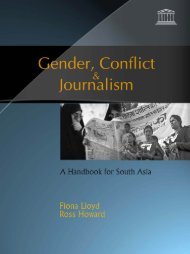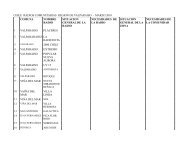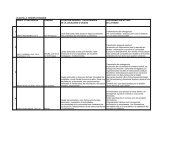Live News - A Survival Guide - International Federation of Journalists
Live News - A Survival Guide - International Federation of Journalists
Live News - A Survival Guide - International Federation of Journalists
- No tags were found...
Create successful ePaper yourself
Turn your PDF publications into a flip-book with our unique Google optimized e-Paper software.
Introductiona collective responsibility through their pr<strong>of</strong>essional organisationsand trades unions to campaign for safer working conditions.<strong>Journalists</strong>, their organisations and their employers, all have a criticalfunction in reducing the unacceptable rate <strong>of</strong> death and injury.The role <strong>of</strong> governmentsGovernments are sometimes directly implicated in attacks on journalists.More commonly, governments have an ambivalent attitudetowards journalists, and do not regard it as a prime duty to protectthem. Each year, press freedom groups and journalists rage over thelack <strong>of</strong> concern shown by governments when media staff areattacked. Few killings <strong>of</strong> journalists are properly investigated.Fewer still are the number <strong>of</strong> culprits brought to justice. It <strong>of</strong>tenseems that killers target journalists and media with impunity.Democracy cannot function while journalists are in fear, but manypoliticians and state <strong>of</strong>ficials believe that a frightened journalistwill be a submissive journalist. Even governments who pride themselveson their democratic credentials put journalists at risk whenthey give the police or courts the right to seize material or pass lawsrequiring journalists to reveal sources or give up confidential information.Such laws can make journalists appear as quasi forces <strong>of</strong>the state, so that those involved in riot or civil disturbance believethat being seen by a journalist is equivalent to being observed by apolice <strong>of</strong>ficer.An important principle was set when the War Crimes Tribunalfor the former Yugoslavia subpoenaed a former Washington Postreporter, Jonathan Randal, to try to compel him to give evidenceabout an interview with Bosnian Serb Radosclav Brdjanin when hewas on assignment in Bosnia. Randal refused to testify andappealed against the subpoena. In December 2002, the Tribunalupheld his appeal and sharply restricted its own powers to compeljournalists to testify, accepting that this could have “a significantimpact upon their ability to obtain information”. The court added:“If war correspondents were to be perceived as potential witnessesfor the Prosecution, they may have difficulties in gathering significantinformation because the interviewed persons may talk lessfreely with them, and may deny access to conflict zones. Second,war correspondents may shift from being observers <strong>of</strong> those committinghuman rights violations to being their targets, thereby puttingtheir own lives at risk.”However, the Tribunal did not rule out compelling journalists to4


